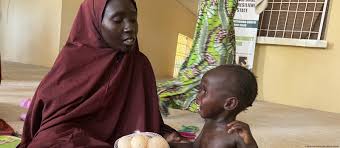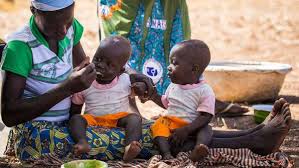Due to economic difficulties, a joint government-United Nations assessment released Friday predicted that over 30 million Nigerians will experience food insecurity next year, a one-third increase from this year, making the country one of its worst hunger crises.
In August, fatal protests broke out in Nigeria, the most populous country in Africa, as a result of the cost of living crisis.
President Bola Tinubu implemented austerity measures, including depreciating the naira and eliminating a decades-old gasoline subsidy, which exacerbated economic suffering and increased inflation.
The analysis, which is done twice a year in 26 states and the federal capital, estimated that by August of next year, 33.1 million people will be food insecure.
Towards the conclusion of this year, that amounts to 24.8 million.
“Several factors are driving this trend, but most prominently are economic hardship coupled with record high inflation, a record rise in food prices, and record high transportation costs,” said a statement released with the findings.
Laptops 1000A representative for the World Food Programme in Nigeria, Chi Lael, told reporters that “economic decisions to strengthen the country in the long term, in the short term have felt like a direct attack on people’s wallets, hitting hardest every time they try to buy food.”
According to Finance Minister Wale Edun, as part of the government’s initiative to assist the most vulnerable families, 5 million households have already received cash handouts totaling 25,000 naira ($15.45).
The primary cause of inflation, which increased from 32.15% in August to 32.70% in September in yearly terms, is high food prices.
Agriculture in the northern states was further impacted by flooding and instability, which raised food prices beyond the means of many households.
A total of 1.1 million tonnes of maize, sorghum, and rice production losses could result from the projected 1.6 million hectares of crops that were destroyed by last month’s floods, mostly in the northern food basket states, according to the joint statement.




















